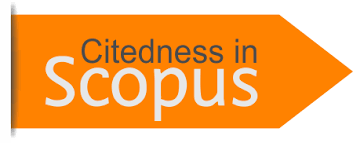Kerangka Konseptual Bagi Pengukuran Tahap Kemahiran Proses Matematik Murid [A Conceptual Framework to Measure the Students' Level of Mathematical Process Skills]
Keywords:
proses matematik, tugasan penyelesaian masalah, pembelajaran reflektif, model Rasch pelbagai fasetAbstract
Kajian ini bertujuan membangunkan kerangka konseptual bagi pengukuran tahap kemahiran proses matematik murid. Proses matematik menyokong pembelajaran matematik yang berkesan dan berfikrah. Kekurangan dari sudut aplikasi proses matematik boleh menjejaskan prestasi murid terhadap matematik dalam konteks yang lebih luas. Dimensi-dimensi proses matematik iaitu perkaitan, perwakilan, komunikasi, penaakulan dan penyelesaian masalah diukur bagi memahami bagaimana murid memproses pengetahuan matematik dan diterjemahkan secara aplikasi bagi menyelesaikan masalah. Kertas kerja ini memperincikan rujukan literatur berkaitan teori perkembangan kognitif, teori pembelajaran konstruktivisme dan reflektif serta model pembelajaran refleksi Kolb. Teori perkembangan dan pembelajaran kognitif menjadi asas pembentukan kriteria bagi rubrik proses matematik yang dibangunkan. Sementara model pembelajaran refleksi Kolb diadaptasi dalam sampel tugasan penyelesaian masalah dan penulisan reflektif yang dibina bagi memberi peluang murid mendemonstrasi kemahiran proses matematik mereka. Maklum balas murid-murid dalam tugasan dinilai oleh sekumpulan pemeriksa berpandukan rubrik. Faset ataupun pemboleh ubah yang menyumbang kepada pengukuran turut diperincikan sebagai kebolehan murid, kesukaran item, ketegasan pemeriksa dan kefungsian skala dan dianalisis menggunakan model Rasch pelbagai faset (MFRM) bagi meningkatkan kesahan proses pengukuran. Justeru, kertas kerja ini diharap dapat menyumbang literatur kajian dari aspek pembangunan dan pengesahan instrumen pengukuran kemahiran proses matematik murid. Pengumpulan data dari pelbagai sumber seperti teori, model, dan dapatan kajian-kajian lepas akan mencadangkan satu kerangka konseptual yang menjadi asas pembinaan rubrik dan tugasan yang dihasilkan.
This research aimed to develop a conceptual framework to measure the students’ level of mathematical process skills. The mathematical process aids the learning of Mathematics to be effective and thoughtful. The lack of incorporating mathematical process could disrupt the students' performance in a wider context of Mathematics. The dimensions in the mathematical process including connection, representation, communication, reasoning and problem-solving are measured to understand how a student processes mathematical knowledge and translates it into solving a given problem. This paper detailed the literature review about the theory of cognitive development, constructivist and reflective learning, and also Kolb's reflective learning model. The theory of development and cognitive learning was used as the foundation in constructing the criteria for the mathematical processing rubric. Besides, Kolb's reflective learning model was adapted into the sample of problem-solving and reflective writing task, which was developed to allow the students to demonstrate their mathematical process skills. The students' responses were assessed by a group of raters based on the developed rubric. The facets or variables that contributed to the measurement were also detailed as students' abilities, the items' difficulties, the raters’ severities, and the scale's functionality. These were analysed using many-facet Rasch model (MFRM) to enhance the validity of the measurement process. Overall, this paper aimed to shed light in terms of research literature about the aspects of development and validation of instruments to measure the students' level of mathematical process. Data collected from various sources such as theories, models and findings of previous studies would suggest a conceptual framework that shall become the foundation in constructing the rubric and task developed.















